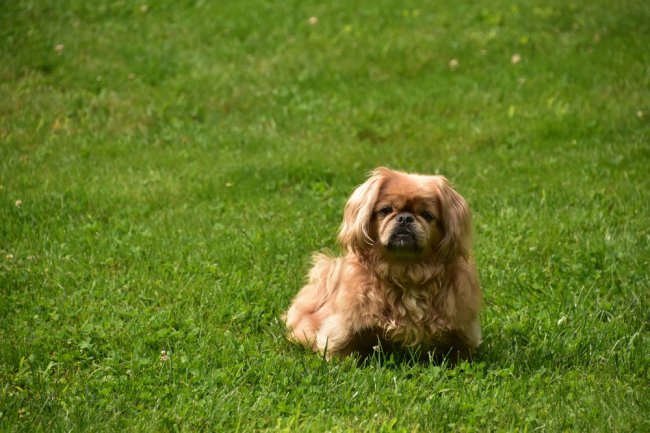Best Diet for Shih Tzu: What to Feed Your Furry Friend
Ensure your Shih Tzu thrives with our focus on the best diet! Learn about nutrition, food types, and special considerations for a healthy, happy pet.

Best Diet for Shih Tzu: What to Feed Your Furry Friend
Feeding your Shih Tzu the right diet is one of the most important things you can do to keep them healthy and happy. Shih Tzus have specific dietary needs that, if met, can help them live a long and joyful life. In this blog, we'll break down what you should be feeding your Shih Tzu, from understanding their nutritional needs to choosing the right type of food.
Understanding Shih Tzu's Nutritional Needs
Just like us, Shih Tzus needs a balanced diet that includes proteins, fats, carbohydrates, vitamins, and minerals. Proteins help build and repair muscles, fats give them energy and keep their coat shiny, and carbohydrates provide the fuel they need to stay active. Vitamins and minerals support their overall health, from a strong immune system to healthy bones.
Since Shih Tzus are small dogs, they need food that packs a lot of nutrition into smaller portions. This helps them stay fit without gaining too much weight.
Types of Food for Shih Tzus
Commercial Dog Food
Commercial dog food is the most common choice for many pet owners. It comes in two main types: dry kibble and canned/wet food. Dry kibble is good for their teeth as it helps reduce plaque buildup. It’s also easy to store and usually cheaper. Just make sure you pick a high-quality brand that lists meat as the first ingredient.
Canned or wet food can be more appealing to picky eaters and has more moisture, which helps with hydration. Again, look for high-quality options with real meat and no fillers.
Homemade Diets
Some owners prefer making their dog’s food at home. This way, you know exactly what’s in their meals. However, homemade diets need to be well-planned to ensure they’re getting all the nutrients they need. It’s a good idea to talk to a vet or a pet nutritionist before starting.
A simple homemade meal could include cooked chicken or turkey, some vegetables like carrots and peas, and grains like brown rice or quinoa. Adding a multivitamin supplement can help cover any nutritional gaps.
Raw Diets
Raw diets, which include raw meat, bones, fruits, and vegetables, have become popular. Fans of this diet believe it leads to healthier skin and more energy. But there are risks, like bacterial contamination and imbalanced nutrition. If you’re considering a raw diet, do thorough research and consult your vet to make sure it’s safe.
Special Dietary Considerations
Age-Specific Diets
Puppies, adults, and senior Shih Tzus have different nutritional needs. Puppies need more protein and calories to support their growth, so high-quality puppy food is best.
Adult Shih Tzus need a balanced diet to maintain their energy and health. Look for food formulated for small-breed adults.
Senior Shih Tzus might need fewer calories but more fiber for better digestion. Senior dog foods often have added supplements for joint health and cognitive function.
Health Conditions
Certain health conditions require specific diets. For example, if your Shih Tzu has allergies, a limited ingredient or hypoallergenic diet might be needed. Dogs with pancreatitis need a low-fat diet, while those with dental issues might benefit from softer foods or special dental kibble.
Foods to Avoid
Some foods are toxic to dogs and should never be given to your Shih Tzu. These include chocolate, grapes, raisins, onions, garlic, and xylitol (a sweetener found in sugar-free products). Also, avoid giving them table scraps, as it can lead to obesity and digestive issues. Stick to dog-specific treats and meals.
Feeding Schedule and Portion Control
Shih Tzus does best with a regular feeding schedule. Puppies usually need three to four small meals a day, while adults can have two meals a day. Portion control is crucial to preventing obesity. Measure their food and adjust the amount based on their weight, activity level, and health. Regular weigh-ins can help keep track of their weight.
Supplements and Treats
Supplements can be helpful, especially for older Shih Tzus or those with health issues. Omega-3 fatty acids support skin and coat health, glucosamine helps with joint health, and probiotics promote a healthy digestive system. Treats should be healthy and given in moderation. Look for low-calorie options made from natural ingredients.
Feeding your Shih Tzu a balanced and nutritious diet is key to their well-being. By understanding their nutritional needs, choosing the right type of food, and considering any special dietary needs, you can ensure your furry friend stays healthy and happy. Always talk to your vet to tailor your Shih Tzu’s diet to their specific needs and address any health concerns. A well-fed Shih Tzu is a happy Shih Tzu, ready to bring joy and companionship to your life.
What's Your Reaction?














